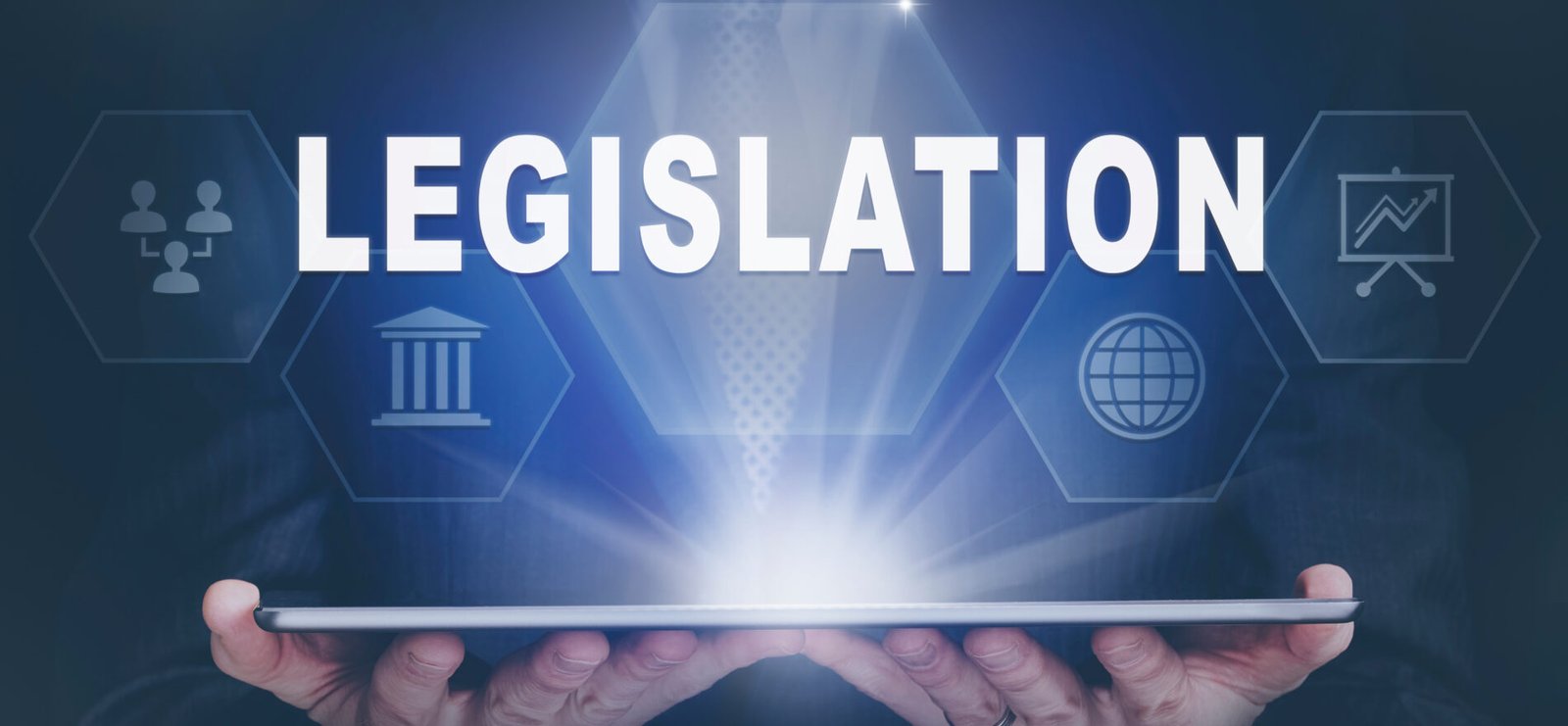VPN and Legislation
Introduction
Virtual Private Networks (VPNs) have become indispensable tools for internet users worldwide, offering enhanced privacy, security, and access to restricted content. However, the legality and regulation of VPN usage vary significantly across different countries. This comprehensive guide explores VPN laws in various regions, the relationship between VPNs and net neutrality, the legal implications of using a VPN, how to navigate government censorship safely, and the impact of cybersecurity policies on VPN usage.
VPN Laws in Different Countries
United States
In the United States, VPNs are generally legal. They are widely used by individuals and businesses to protect privacy and secure internet connections. The U.S. has robust privacy laws, but government agencies can request data from VPN providers if necessary. Notably, using a VPN for illegal activities, such as hacking or accessing illegal content, remains unlawful.
European Union
The European Union treats VPN usage similarly to the United States. VPNs are legal, and the General Data Protection Regulation (GDPR) provides strong protections for user privacy. However, as in the U.S., using a VPN for illegal purposes is punishable by law. The GDPR requires VPN providers to adhere to strict data protection standards, ensuring user data is handled with care.
China
China is known for its stringent internet regulations and heavy censorship. The use of non-government-approved VPNs is illegal. The Great Firewall of China blocks many foreign websites and services, and unapproved VPN services are often targeted and blocked. Chinese authorities require VPN providers to obtain government approval and adhere to strict monitoring and data retention policies.
Russia
In Russia, VPN providers must comply with government regulations, including blocking access to websites blacklisted by the authorities. VPN services that do not comply with these regulations are banned. Users can face fines for using non-compliant VPN services. Russian laws require VPN providers to register with the government and share user data if requested.
Middle East
In many Middle Eastern countries, such as the UAE and Saudi Arabia, VPN usage is heavily restricted. The use of VPNs to access blocked content can result in severe penalties, including fines and imprisonment. These countries impose strict internet censorship and surveillance measures, and VPN providers must comply with local laws or face being banned.
Australia
In Australia, VPNs are legal, and their usage is common for protecting privacy and accessing geo-restricted content. However, Australian law requires ISPs and VPN providers to retain metadata for two years, which can be accessed by law enforcement agencies. Users should choose VPNs with strong privacy policies to mitigate potential risks.
India
India has a mixed approach to VPN usage. While VPNs are not explicitly illegal, the government has shown increasing interest in monitoring and regulating internet traffic. There have been instances of VPN services being blocked temporarily during periods of civil unrest. Users should stay informed about the latest developments and choose reputable VPN providers.
VPNs and Net Neutrality: What It Means for You
Bypassing Throttling
Net neutrality is the principle that internet service providers (ISPs) should treat all data on the internet equally, without discriminating or charging differently based on user, content, website, platform, or application. VPNs can help users bypass ISP throttling, where certain types of traffic, such as streaming services, are slowed down. By encrypting internet traffic, VPNs prevent ISPs from identifying the type of data being transmitted, thereby maintaining consistent speeds.
Access to Blocked Content
In countries where ISPs block certain websites or services, VPNs enable users to access these resources by masking their IP addresses and making it appear as though they are browsing from a different location. This can be particularly useful for accessing geo-restricted content, such as streaming services or news websites.
Enhancing Privacy
VPNs enhance online privacy by encrypting internet traffic and hiding users’ IP addresses. This prevents ISPs, advertisers, and other third parties from tracking users’ online activities. In regions with strong net neutrality protections, VPNs further safeguard users’ privacy by ensuring their data is not subjected to discriminatory practices.
Net Neutrality and VPN Legality
While VPNs can help uphold the principles of net neutrality, their legality and acceptance vary. In regions where net neutrality is not legally enforced, ISPs might engage in practices that undermine these principles. Users in such regions can use VPNs to circumvent restrictions and maintain an open internet experience.
Legal Implications of Using a VPN
Privacy vs. Illegal Activities
Using a VPN to enhance privacy and security is legal in most regions. However, it is crucial to understand that engaging in illegal activities, such as hacking, distributing illegal content, or committing fraud, remains unlawful and punishable by law, even when done through a VPN. Users should always use VPNs responsibly and within the legal boundaries of their jurisdiction.
Data Retention Laws
In some countries, VPN providers are required to retain user data for a certain period. This can undermine the privacy that VPNs are supposed to offer. Users should choose VPNs with a strict no-logs policy and those based in jurisdictions with strong privacy protections. It’s also essential to read and understand the VPN provider’s privacy policy and terms of service.
Government Requests for Data
Governments can request user data from VPN providers for legal and security purposes. While some VPNs claim to have a no-logs policy, users should be aware that providers in certain jurisdictions might still be compelled to comply with such requests. Choosing a VPN provider based in a privacy-friendly country can mitigate this risk.
Using VPNs in Restricted Regions
In regions where VPN usage is restricted or regulated, users should be cautious. Using a VPN in such areas can lead to legal consequences, including fines and imprisonment. It’s essential to understand the local laws and regulations regarding VPN usage and to choose a provider that offers features like obfuscation to mask VPN traffic.
VPNs and Government Censorship: How to Navigate Safely
Choosing the Right VPN
To navigate government censorship safely, it’s crucial to choose a VPN that is known for its reliability, security, and ability to bypass censorship. Features such as obfuscation, which hides VPN traffic to make it appear as regular internet traffic, can help users bypass censorship in restrictive regions. Additionally, choosing a VPN with a large network of servers in various countries can provide more options for accessing unrestricted content.
Staying Informed
Users should stay informed about the latest developments in their country’s internet regulations and the status of their chosen VPN service. Governments frequently update their censorship methods, and VPN providers continuously improve their technologies to counteract these measures. Regularly updating the VPN software and using additional security measures, such as multi-factor authentication, can further enhance safety.
Utilizing Advanced Features
Many VPNs offer advanced features designed to combat censorship and enhance security. These include:
- Obfuscated Servers: Servers designed to bypass VPN blocks by disguising VPN traffic as regular HTTPS traffic.
- Kill Switch: A feature that automatically disconnects the internet if the VPN connection drops, preventing data leaks.
- Multi-Hop: Routing traffic through multiple servers in different countries to enhance privacy and bypass censorship.
- DNS Leak Protection: Ensuring that DNS requests are routed through the VPN and not exposed to the ISP.
Ethical Considerations
While using VPNs to bypass censorship can provide access to information and communication tools, users should also consider the ethical implications. In some regions, bypassing government censorship might be seen as a form of civil disobedience. Users should weigh the risks and benefits and make informed decisions.
Impact of Cybersecurity Policies on VPN Usage
Increased Regulation
As governments recognize the importance of cybersecurity, there is a trend toward increased regulation of internet services, including VPNs. These regulations can impose requirements on VPN providers to cooperate with law enforcement, block certain types of content, or adhere to strict data retention policies. Users should stay informed about the regulatory environment in their region and choose VPN providers that prioritize user privacy and transparency.
Balancing Privacy and Security
Users need to balance the benefits of privacy with the need for security. Opting for reputable VPN providers that prioritize user privacy and comply with necessary security standards can help achieve this balance. It’s essential to choose VPNs that use strong encryption protocols, have a clear no-logs policy, and are transparent about their data handling practices.
Corporate and Government Surveillance
In some regions, corporate and government surveillance is pervasive. VPNs can provide a layer of protection against such surveillance by encrypting internet traffic and masking users’ IP addresses. However, users should be aware that no technology can offer absolute anonymity. Combining VPN usage with other privacy-enhancing tools, such as secure browsers and encrypted messaging apps, can enhance overall security.
Cybersecurity Best Practices
To maximize the benefits of VPN usage, users should follow cybersecurity best practices, including:
- Regularly Updating Software: Keeping the VPN software and other applications up to date to protect against vulnerabilities.
- Using Strong Passwords: Employing strong, unique passwords for VPN accounts and enabling multi-factor authentication.
- Being Cautious with Public Wi-Fi: Avoiding sensitive transactions over public Wi-Fi networks and using a VPN to encrypt traffic when necessary.
- Educating Oneself: Staying informed about the latest cybersecurity threats and best practices to protect personal information.
Conclusion
Navigating the complex landscape of VPN laws and regulations requires a thorough understanding of the legal environment in different countries. By staying informed and choosing the right VPN services, users can enhance their online privacy and security while staying within the bounds of the law. This guide provides a comprehensive overview of the key considerations and best practices for using VPNs responsibly and effectively in various legal and regulatory contexts.
For more detailed information and updates on VPN laws and cybersecurity policies, visit Guru4K.com.





